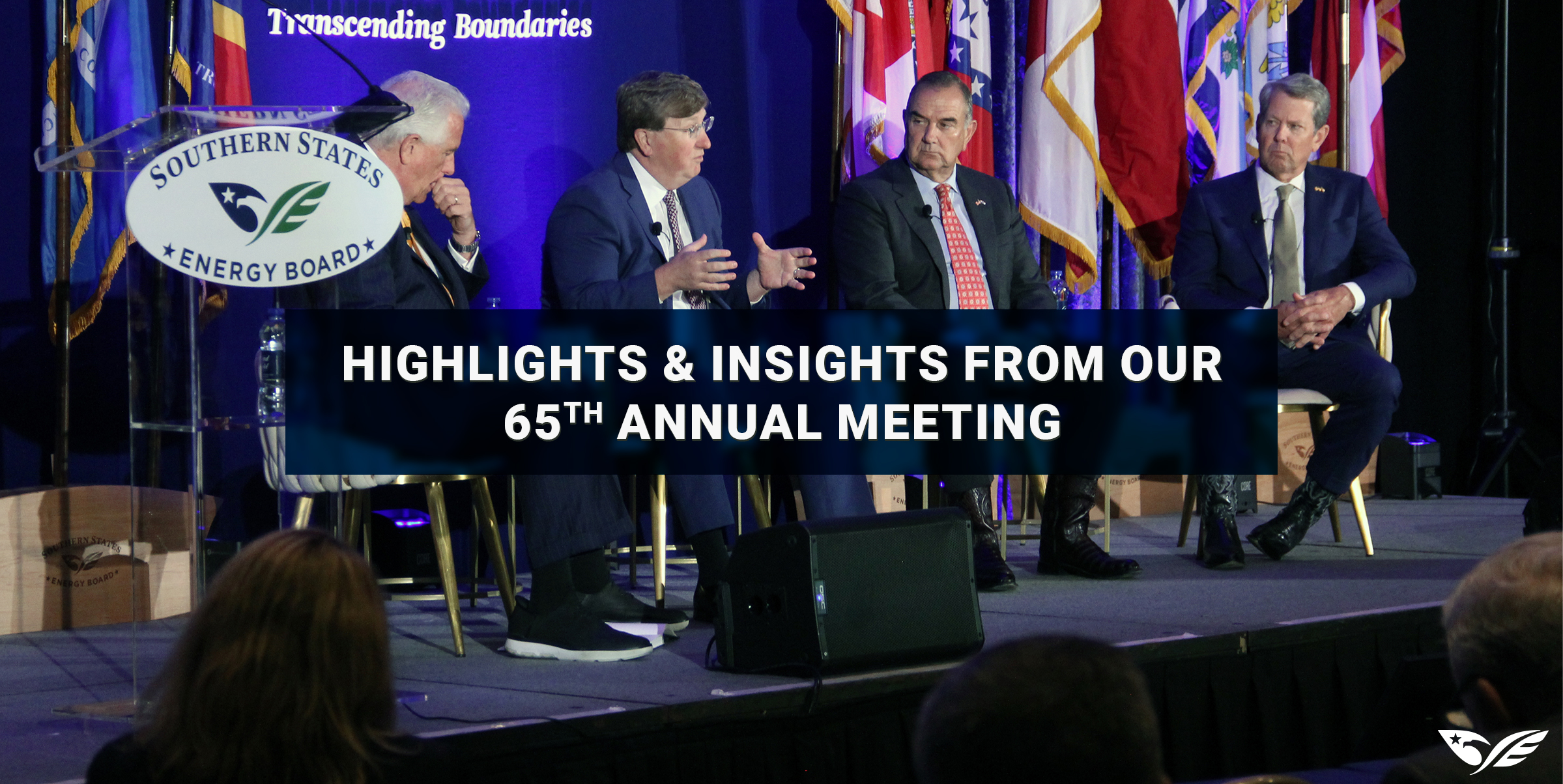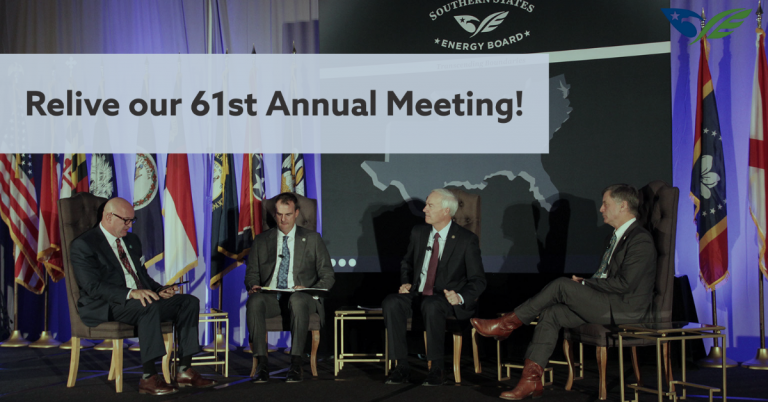Energy in the South: It Just Means More
The Southern States Energy Board’s 65th Annual Meeting in Point Clear, Alabama, brought together governors, legislators, and energy leaders to chart the region’s path forward. Across plenaries, keynotes, and discussions, attendees focused on innovation, reliability, and collaboration in shaping the South’s energy future.
The origins of SSEB trace back to the Southern Governors Conference in Point Clear, Alabama, where on October 20, 1955, governors approved the “Point Clear Plan” to coordinate the region’s exploration of civilian uses of nuclear energy. Nearly seventy years later, the Board returned to Point Clear as established leaders in energy innovation, collaboration, and policy across the South.
Here are five standout moments from the event.
1. Governors Energy Caucus Sets the Tone
The Governors’ Energy Caucus brought together Gov. Kay Ivey (AL), Gov. Mike Kehoe (MO), Gov. Brian Kemp (GA), and Gov. Tate Reeves (MS) for a candid conversation on regional energy priorities.
Moderated by the Executive Director of the University of Houston’s Center for Carbon Management in Energy, Charles McConnell, the discussion centered on workforce readiness, infrastructure investment, and the South’s growing leadership in both traditional and emerging energy sectors. Each governor emphasized the importance of collaboration in building a resilient and competitive energy economy.
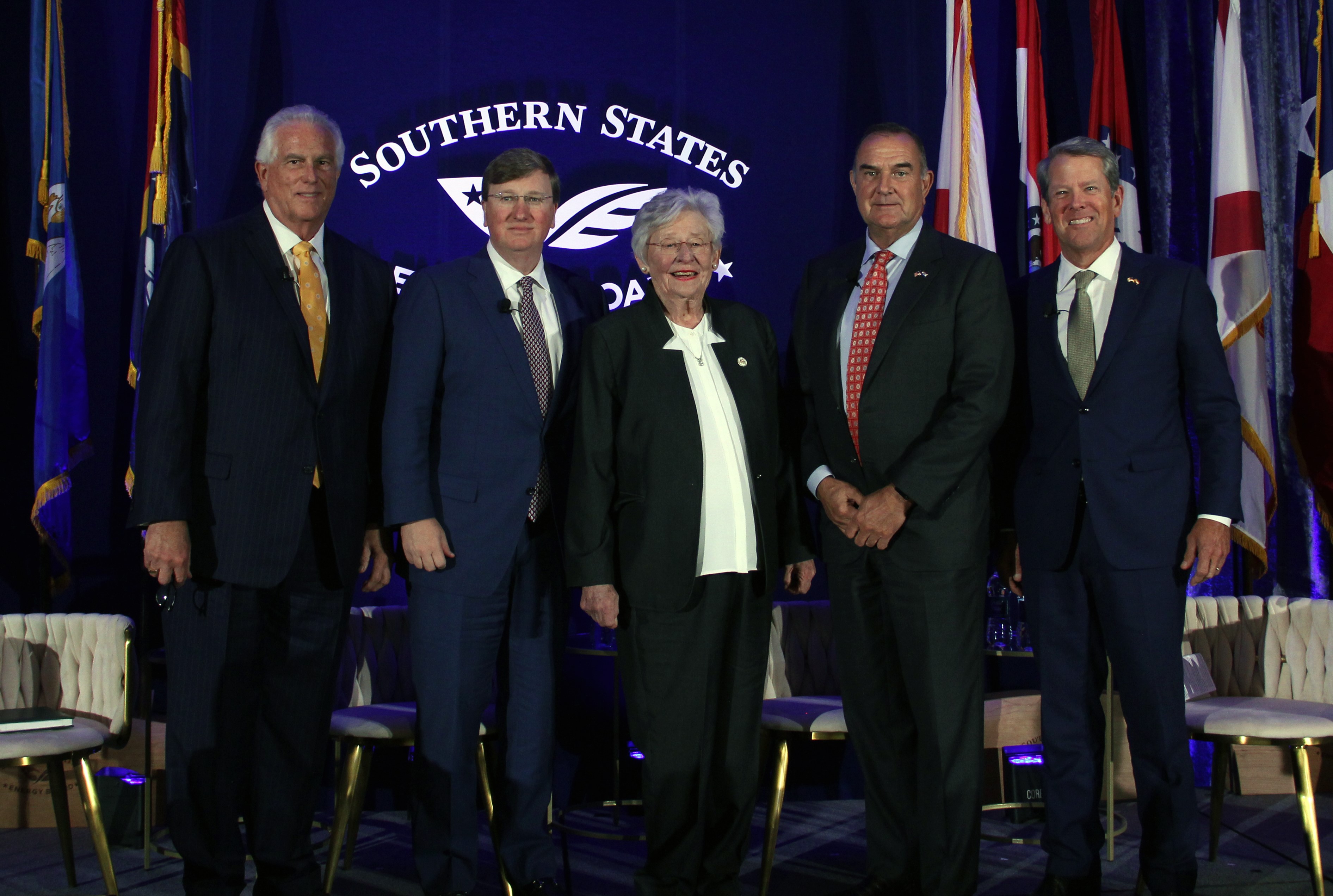
2. Energy Reliability in Focus
Utility executives from Spire, ONE Gas, and Southeast Gas & Southeast Energy Authority led the panel “In the Trenches: Natural Gas Utilities Holding the Line on Reliability.”
Moderated by Cynthia Lee Almond, President of the Alabama Public Service Commission, the conversation explored how natural gas providers are adapting to evolving demand, policy pressures, and infrastructure modernization needs. Their talk reinforced the essential role of natural gas in maintaining system reliability.
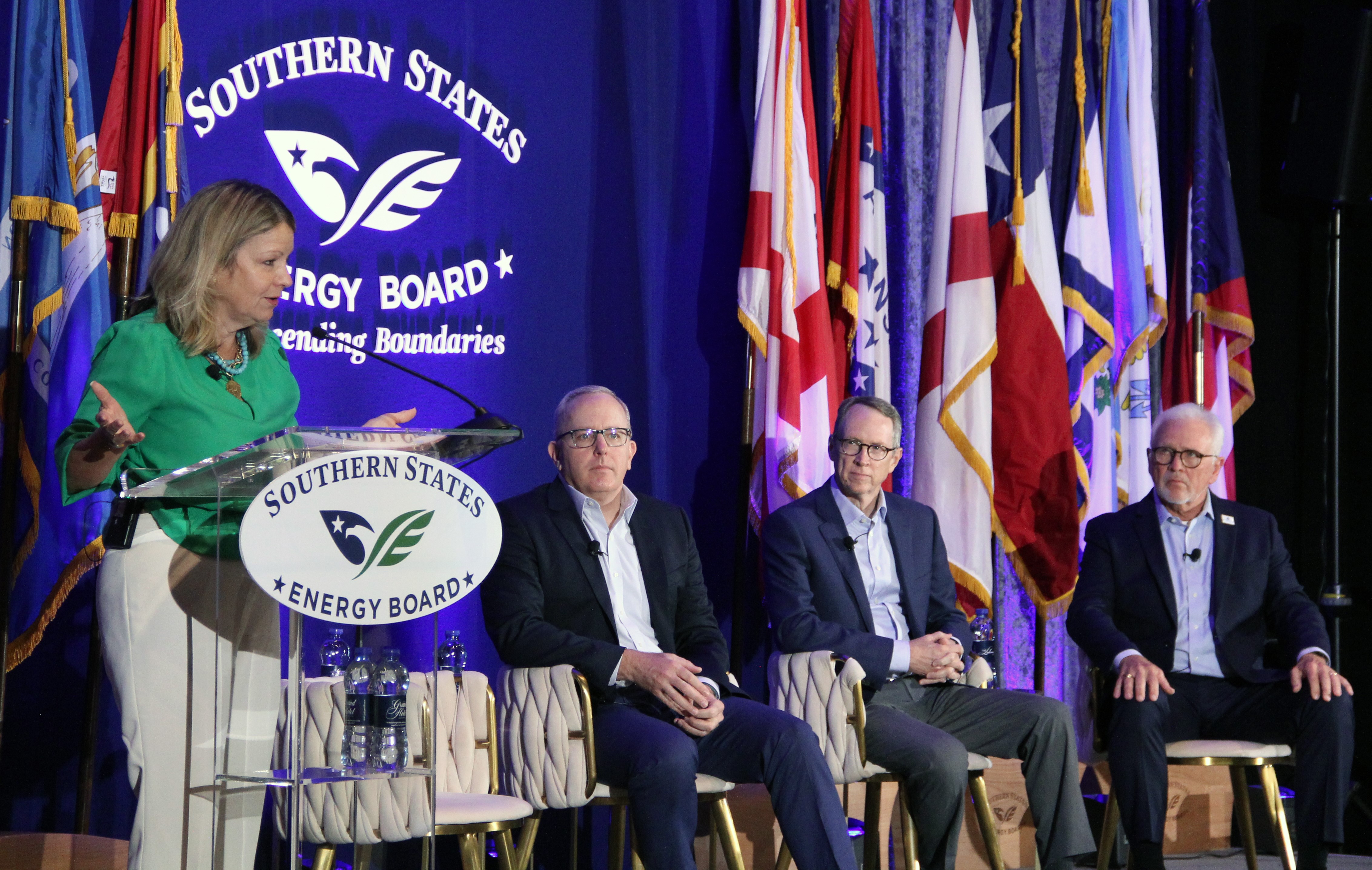
3. States Link Energy to Economic Growth
In “State Game Plans to Address Energy Needs for Economic Development,” representatives from Alabama, Louisiana, Mississippi, and West Virginia outlined how energy policy is driving new opportunities for investment and workforce development.
Speakers highlighted state-specific strategies to attract advanced manufacturing and diversify energy supply, which enables the South to position itself as a hub for both innovation and industrial expansion.
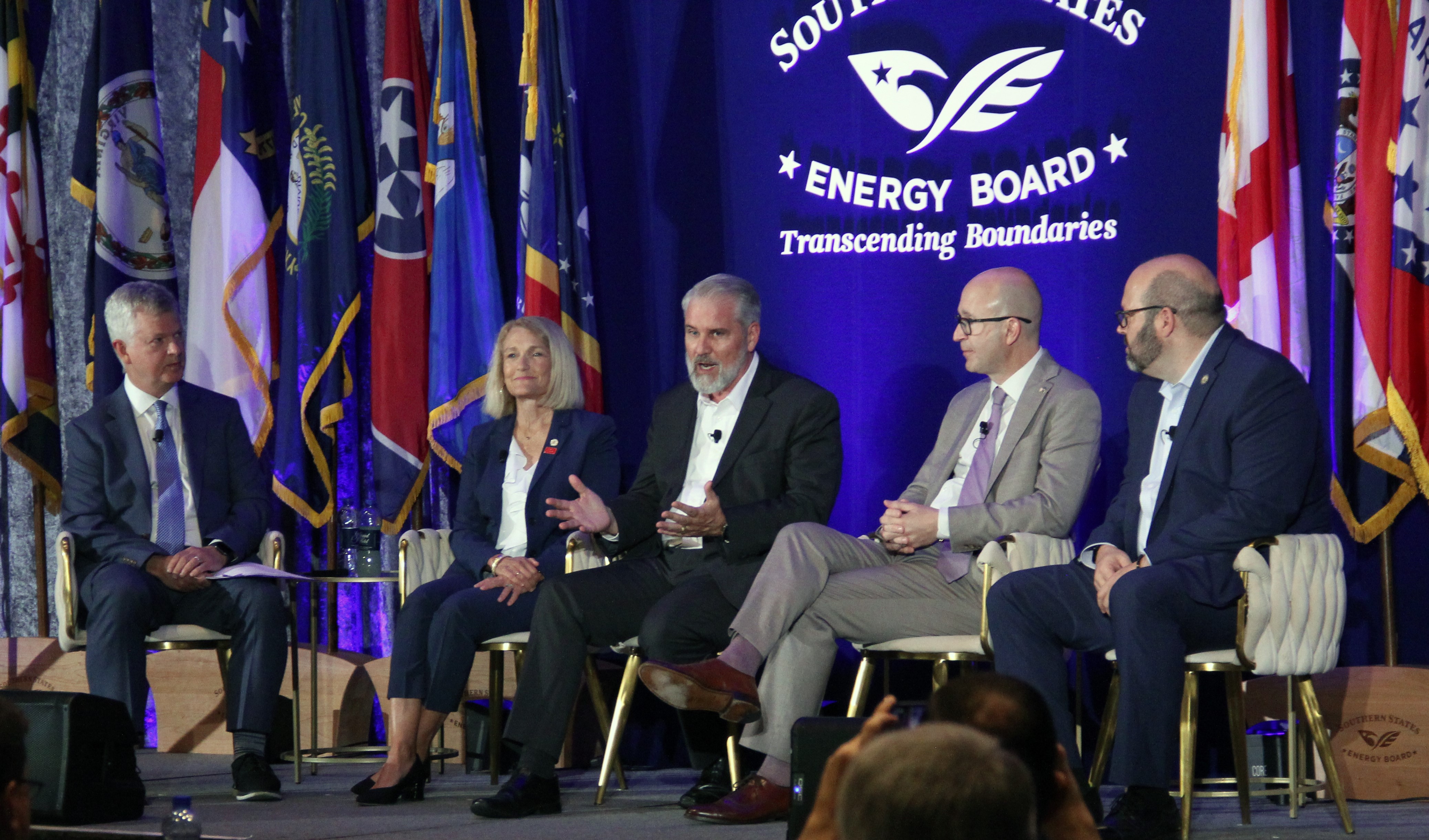
4. Federal Focus on Nuclear Energy
Georgia Gov. Brian Kemp introduced David A. Wright, Chairman of the U.S. Nuclear Regulatory Commission, who delivered a keynote address underscoring nuclear energy’s vital role in a balanced, low-carbon grid.
Mr. Wright emphasized how state and federal coordination can strengthen reliability, expand clean energy deployment, and support the South’s continued leadership in nuclear energy infrastructure and policy. His presence also highlighted our beginnings as the Southern Interstate Nuclear Board, a legacy that continues to shape our leadership in energy innovation and policy today.
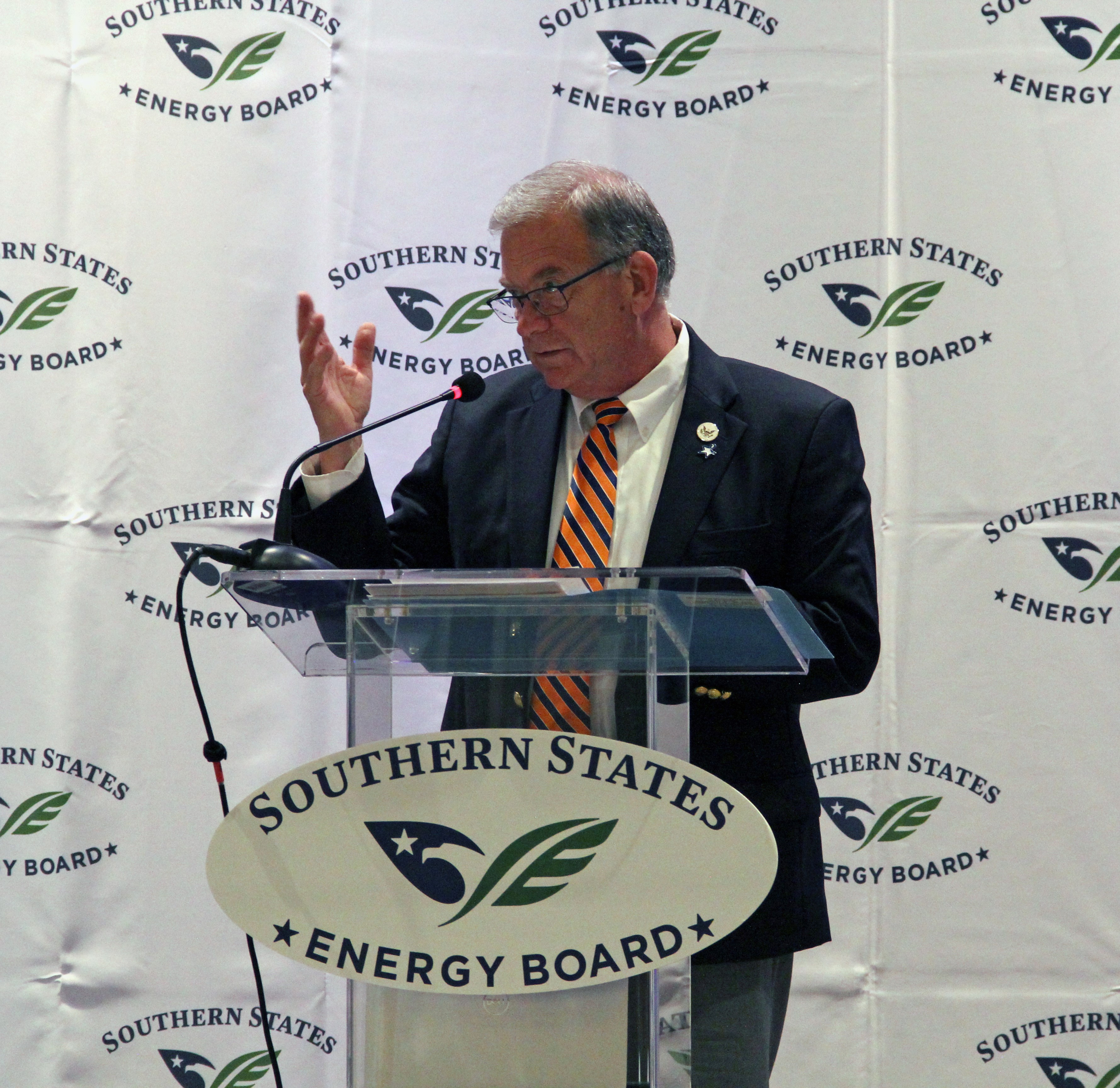
5. Innovation in Carbon Management Takes Center Stage
The closing plenary, “Innovation in Carbon Capture, Utilization & Storage (CCUS) Projects: Securing Jobs, Industrial Development, & Energy Dominance,” spotlighted experts from the University of Houston, Tenaska, Carbonvert, and the Global CCS Institute.
The panel—led in discussion by our Principal Scientist and Strategic Partnerships Lead, Dr. Benjamin Wernette—detailed advancements in carbon management technology that promise to secure industrial jobs and reduce emissions while fueling sustainable economic growth across the region.
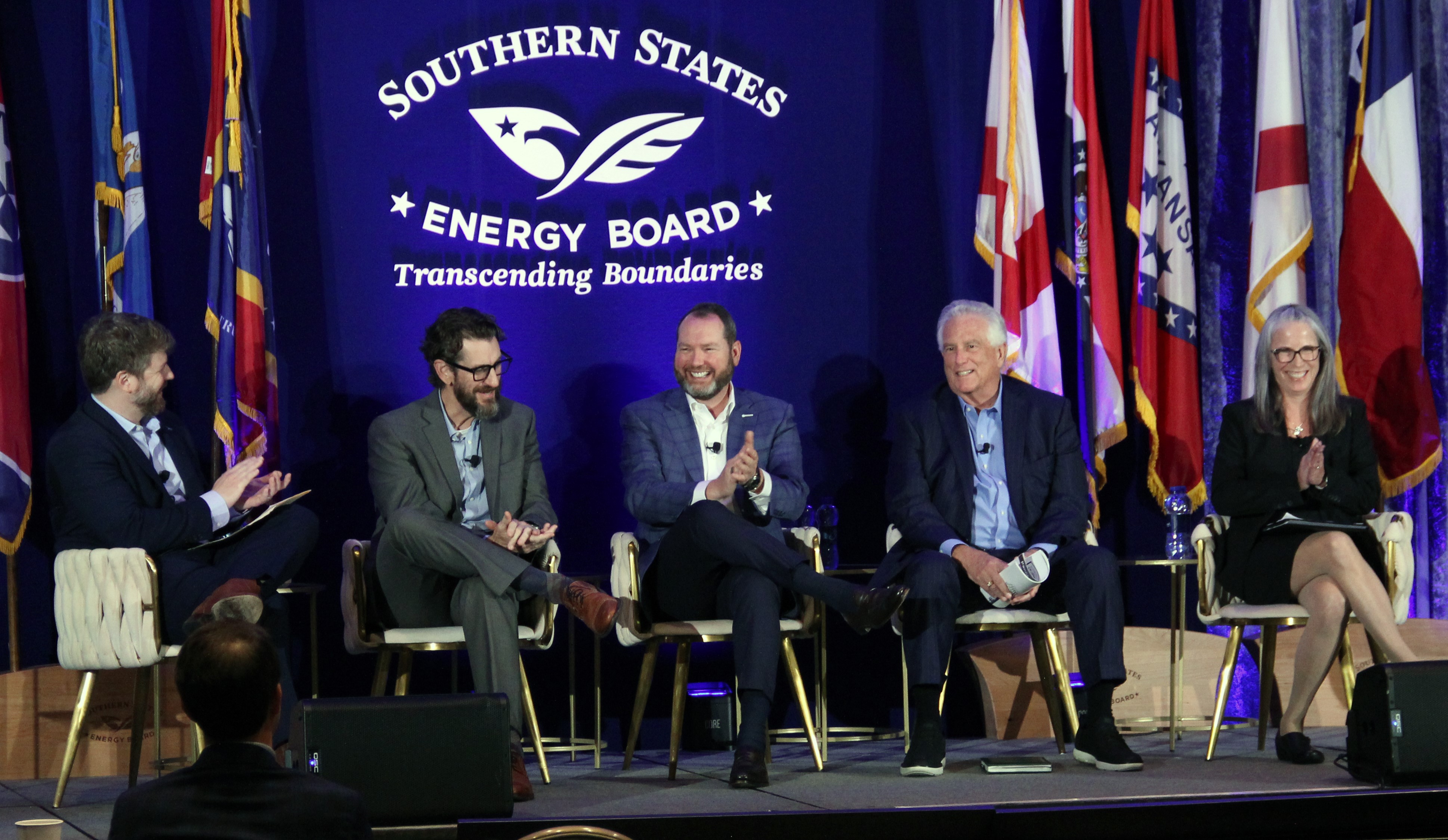
Looking Ahead
The 65th Annual Meeting concluded with deep appreciation for the Board’s members, sponsors, and partners who make our mission possible.
As the Board looks to the future, the message is unmistakable: innovation, reliability, and collaboration will drive the region’s energy leadership—because in the South, it just means more.
To view more event photos or review the meeting program, click here.

